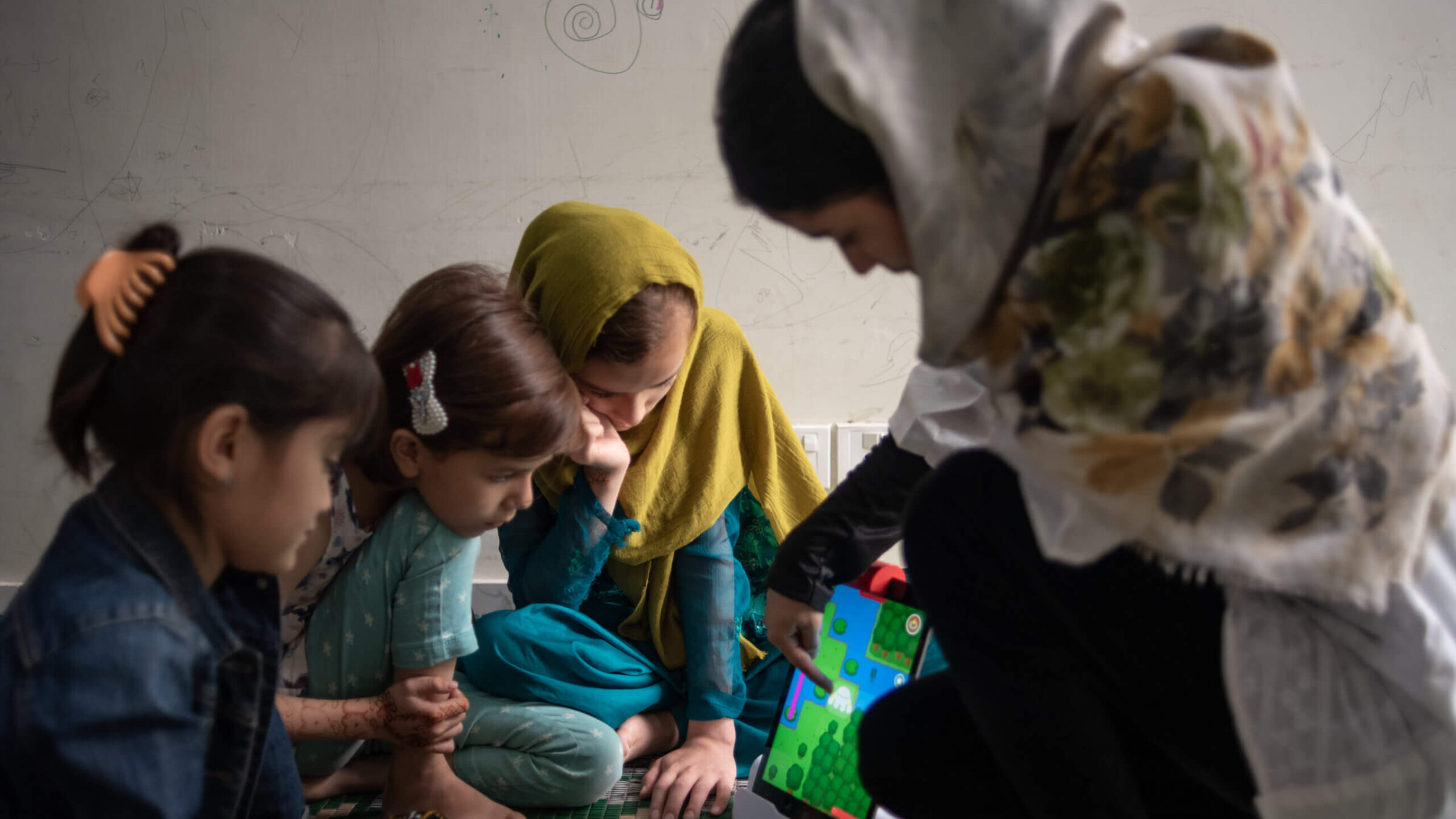For the first time in decades, synagogues can sponsor refugees — what does that mean?
A new initiative allows private groups to help resettle refugees for the first time since the 1970s

Children whose families fled Afghanistan after the fall of Kabul in 2021 take part in a robotics and electronics class at a guesthouse run by the Future Brilliance charity on April 28, 2023 in Islamabad, Pakistan. Photo by Rebecca Conway/Getty Images
It’s been a decade of refugee crises, spurred by, among others, Syria’s civil war, the 2021 U.S. withdrawal from Afghanistan and the ongoing war in Ukraine. Witnessing the despair of mass displacement has left many wondering how to help. But until now, Americans have had limited options for responding due to federal restrictions on the operations of refugee resettlement.
That’s changing: The government is opening the door for more people to help resettle refugees through the Welcome Corps, a new State Department program. Though the program launched in January, its resettlement partners were announced this week, and include HIAS, the Jewish refugee services agency.
In an interview, Mark Hetfield, president and CEO of HIAS, said he sees the program as a “throwback” to when “informal community groups did resettlement” before the process was formalized through the Refugee Act of 1980.
Although the Refugee Act allowed for a greater number of refugees to enter the United States, it limited resettlement to places where licensed resettlement affiliates were located. This prevented communities in smaller or more remote locations from helping welcome refugees to the United States.
With the launch of the Welcome Corps, Hetfield sees an opportunity for many more Jewish groups to get involved with refugee resettlement.
“‘Welcome the stranger’ is repeated 36 times in the Torah,” Hetfield said. “So we’re really happy to help people fulfill this commandment.”
This interview has been edited for length and clarity.
What prompted the State Department to reach out to organizations like HIAS and launch the Welcome Corps?
This all started pretty recently. The idea of doing private sponsorship was under discussion in the U.S. for a long time, but it was really the Afghan crisis that expedited this.
The capacity of the resettlement agencies, including HIAS, had been so eviscerated under the Trump administration that we did not have the capacity to resettle quickly. So we and the State Department had to be creative and find other solutions. And one of them was to accelerate the establishment of these private sponsorship groups.
How will the Welcome Corps expand on HIAS’ prior work?
It allows us to resettle refugees anywhere in the country. Before, we were constrained to those places where we have actual full-scale resettlement affiliates. So it’s really opened up a whole new world of engagement. It used to be, if a synagogue or community group wanted to resettle refugees, we would just have to refer them to the Lutherans or the Catholics, and now we can do it all ourselves.
When you are settling refugees, how do you measure success?
Self-sufficiency. That’s the best overall barometer in terms of how well people are adjusting. Whether or not they’re able to find a job that is enough for them to support themselves and their family and live independently.
What challenges should communities expect to face when welcoming refugees?
Finding appropriate housing in a neighborhood where the refugees will be able to stay past the support period is always a struggle.
There is a national housing crisis, which in some places is worse than others. It’s what keeps our affiliate directors up at night. And it’s the biggest challenge as well that people face when they sponsor refugees privately.
One of the most important messages: You gotta hustle and find apartments that are in appropriate neighborhoods, where the people can expect to stay beyond that initial six months after they come in.
Is there an example that you can point to for what long-term involvement by Jewish groups in refugee resettlement might look like?
While HIAS’ main partners are Jewish Family Service agencies, we do now have a full partner in the resettlement program. Synagogue B’nai Emunah in Tulsa, Oklahoma, is a synagogue, but they’re actually now a full-scale resettlement partner. And so that’s certainly possible for other congregations and organizations as well.
CORRECTION: An earlier version of this story mistakenly stated that the Welcome Corp program launched this week. It launched in January, but announced its partner resettlement agencies this week.




















